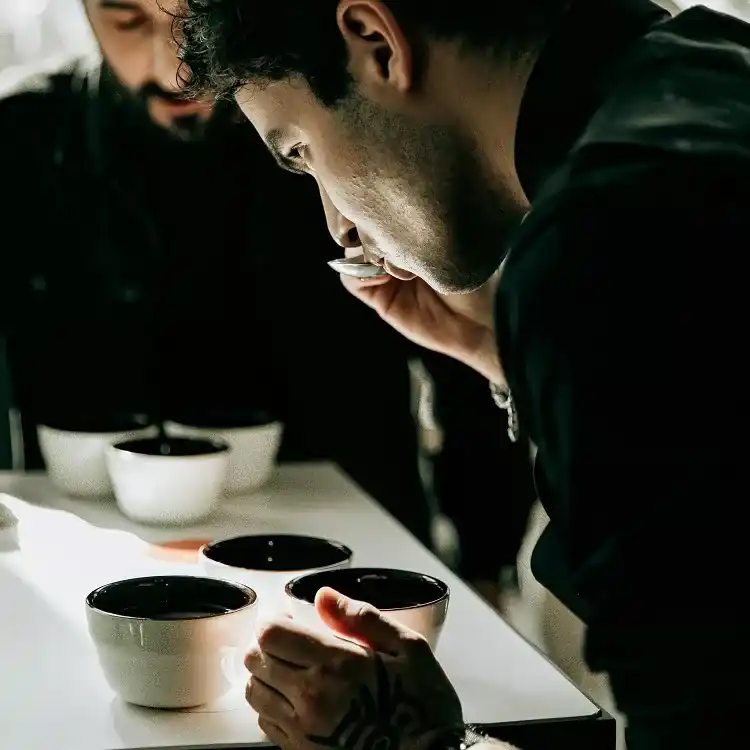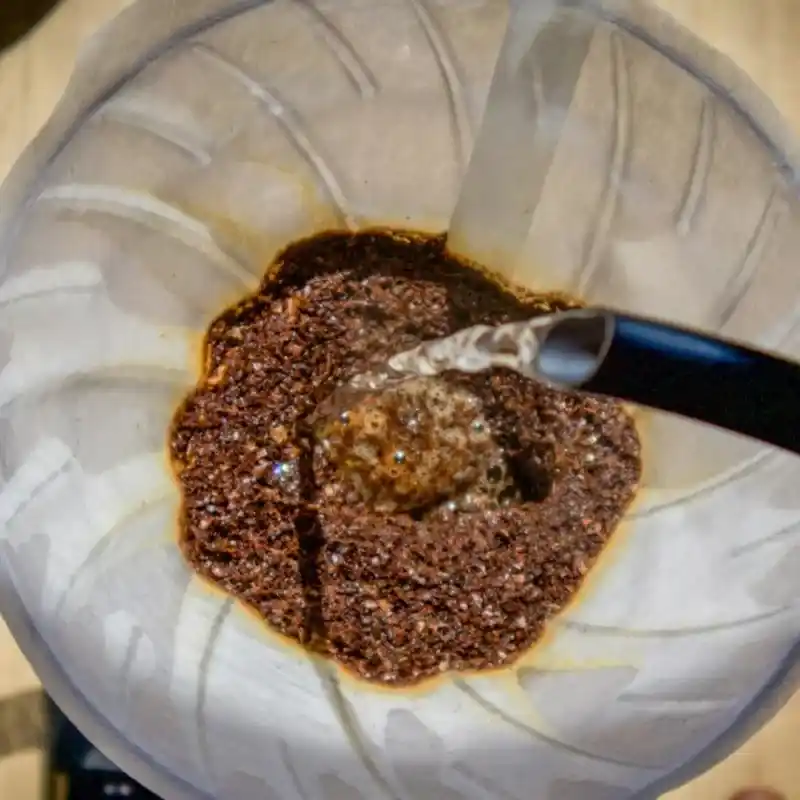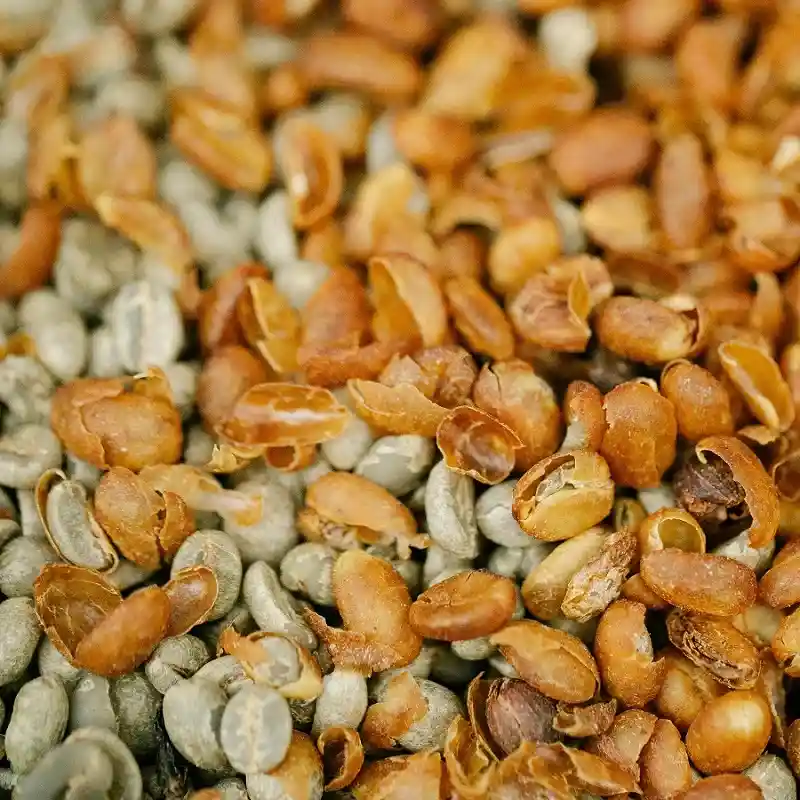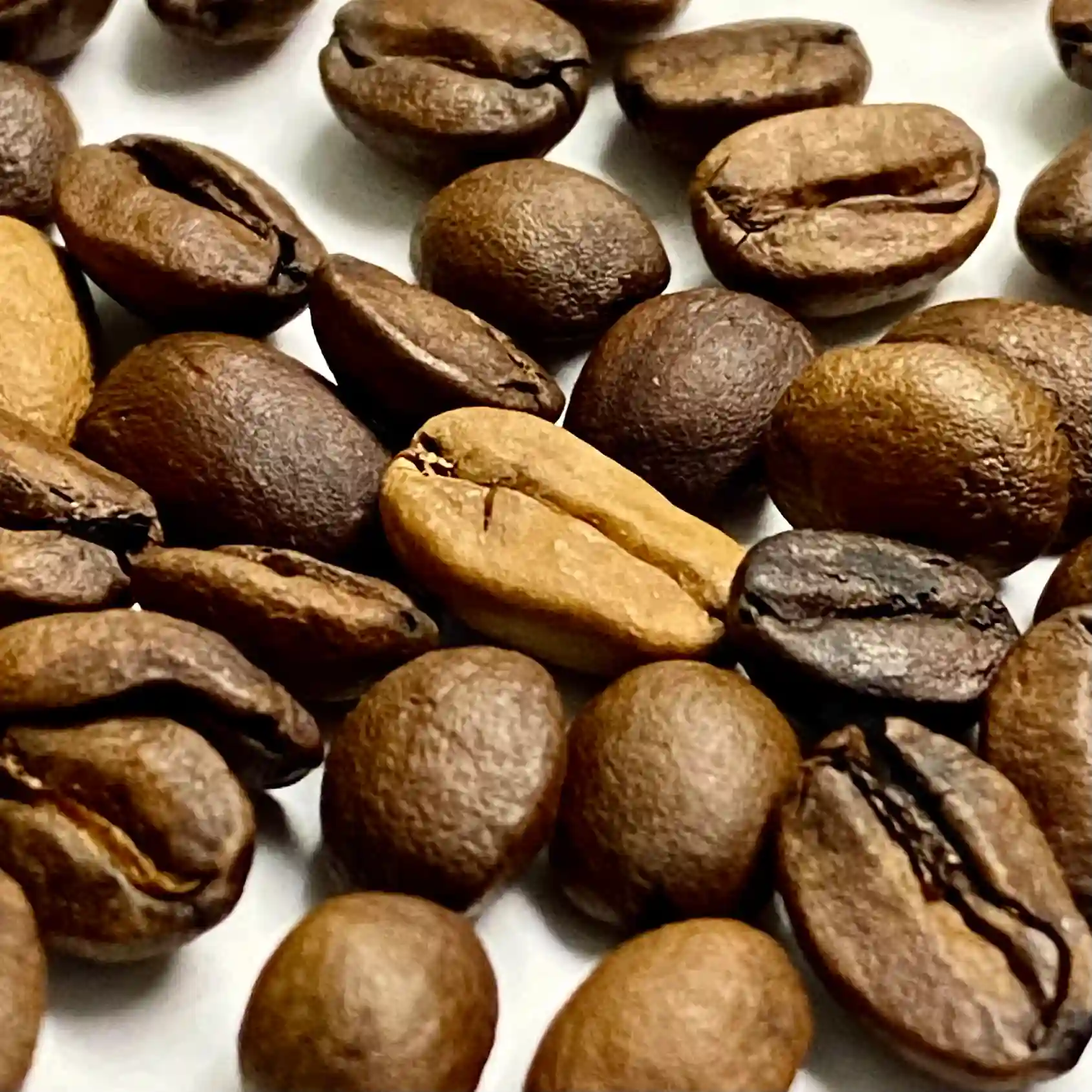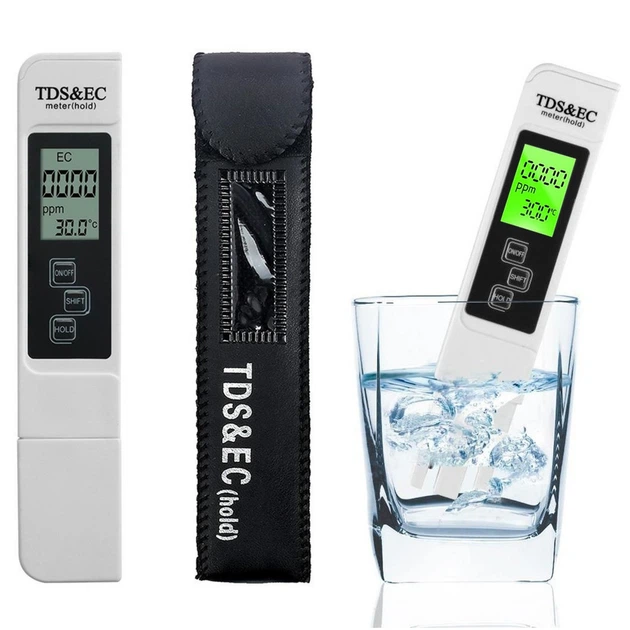Q graders. They know exactly how you feel.
The world of specialty coffee is a symphony that requires not only musicians but also instrument tuners to make it sound smooth. This is exactly what Q graders do: fine-tune coffee quality with precision, subtlety, and uncompromising accuracy.
This profession did not appear by chance. At some point, the coffee market grew to the point where it was no longer satisfied with vague assessments of flavor. Tasty, good, bitter – quality assessments that were no longer enough for professionals. Producers, roasters, retailers, and consumers needed a common language. This is how the quality assessment system supported by the Coffee Quality Institute was born. Q-grading was formed on its basis.
While most of us choose coffee by the name of the country or a colorful label, the Q grader already knows exactly what flavor, aroma, and texture the product has. It can identify the variety, processing method, and potential defects. And it can do this in just a few sips. The Q grader’s tool is a capping spoon, and the method is an international sensory language created not for aesthetics, but for a single purpose: to give each grain a fair assessment.
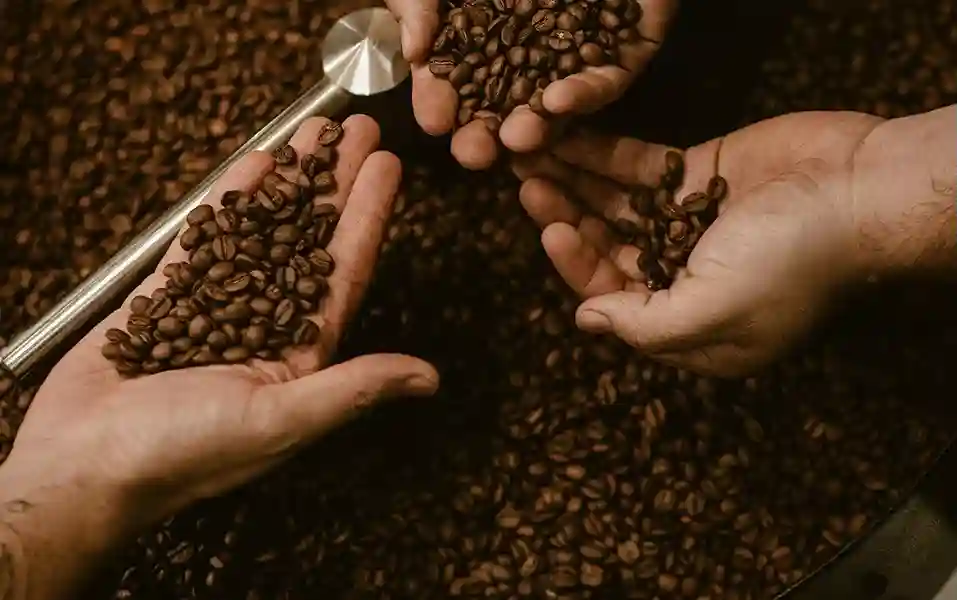
How the need for such a profession arose
When the coffee market began to move from a mass product to a niche art, there was a need for standardization. Not in dry numbers, but in taste assessment. The specialty sector was developing. Manufacturers wanted to know how good their products were. Roasters were looking for stability. Consumers wanted reliability and a sense of trust. That’s when the Coffee Quality Institute (CQI) came into play, launching the Q Grader certification program. It happened in 2004. The goal was to teach professionals how to evaluate coffee according to a single scoring system so that the quality of coffee could be understood without words, based on numbers and descriptions.
Today, more than 6,000 people around the world hold the Q certificate. Behind this figure, a network of experts who are professionally engaged in flavor assessment help the coffee industry become more honest, accurate and delicious.
Q grader: expectations and skills
Taste is at the center of this profession. But behind it is a whole set of important skills:
– distinguish between types of acidity, texture, and flavor intensity, and notice even the most subtle shades;
– accurately record defects that occur during harvesting, drying, transportation, or roasting, as even small deviations affect the quality of the coffee;
– determine the balance of the cup, the aftertaste, and the purity of the profile to form a complete picture of the taste;
– work with green beans: evaluate green beans, identify visual defects, measure moisture, shape, density, as this helps to predict the final result;
– understand the botany of coffee: from Arabica to hybrid varieties, understand the characteristics of each;
– read processing and fermentation technologies, know how they affect the beans and taste;
– analyze how the roasting profile changes the flavor palette and reveals new shades.
And most importantly, you need to be able to accurately describe your impressions so that others can make decisions based on your quality assessments. This profession requires not only a sharp taste, but also analytical thinking, attention to detail, and great responsibility.
Certification q grader
To become a Q grader, you have to complete an intensive training course and pass 22 separate tests. This is not a weekend course, but a serious intellectual and sensory challenge.
In the program:
- blind tastings to determine acidity and defects;
- Taste tests (triangulation);
- work with green beans and samples of different roasting degrees;
- a test of the ability to conduct a coffee tasting by capping according to the protocol.
The courses usually last six days. Certification must be confirmed every three years. In order to confirm your professional skills and renew your certificate, you need to pass a series of sensory tests and exams again.
In some countries, such trainings are held several times a year. In Ukraine, the first centers for training Q graders have appeared recently, but a considerable number of coffee specialists are still attracted to Q certification in Warsaw, Milan, and Barcelona.
Why people choose this profession
The reasons are different. Some want to improve their skills and work in the global market. Others want to help farmers improve the quality of their crops. Others feel the need to update their knowledge of coffee and become a true expert in this field.
One way or another, the Q grader certification opens many doors. Q graders work for importing companies, roasting shops, coffee laboratories, and consulting agencies. They judge at championships, develop their own trainings, and help coffee shops build their assortment.
The advantages include prestige, mobility, and the opportunity to cooperate with international brands.
Challenges include high stress levels, constant sensory load, and the need to maintain clear perception even after hundreds of dips a day.

Where the Q grader expertise works
It’s not an office job from 9 to 6. Sometimes it’s a field in Colombia or a lab in Rio. Sometimes it’s a conference in London or a competition in Africa.
Areas of application:
- analysis and purchase of coffee at the stage of working with green beans for roasters;
- creating flavor profiles for new products;
- evaluation of competitive samples at international competitions;
- development of training programs;
- quality control in production.
Thanks to Q graders, the manufacturer finds out what defects the batch of goods has, and the consumer finds out why the coffee in the cup tastes a certain way.
The future: will machines replace human taste perception?
Sensor technology is developing rapidly. Devices that can detect acidity, humidity, or roasting level are already appearing. In the future, we may see the emergence of machine-based flavor assessment. The assessment will probably be quick and objective. The machine will not have problems with fatigue or cleanliness of the tongue, like a grader. But will technology be able to replace the intuition and depth of human taste experience? The machine won’t feel the emotion of the cup, won’t be able to explain why the acidity is pleasant and not aggressive. Q grader is not a sensor, but an interpreter. And this is its strength.
Q graders and a specific worldview
A Q grader is a person who sees coffee differently. He or she is inside the process, understands not only the taste, but also the entire path of the bean, from tree to cup. He or she is constantly learning, developing his or her senses, sharpening sensory skills, and closely monitoring changes at every stage of production. Q grader appreciates the work of farmers who put their heart and soul into each bean, and maintains honesty in procurement, building trust between producers, roasters and consumers. This trust becomes the foundation for true quality and transparency in the market. If you have any doubts about whether it is worth investing months and thousands of dollars in developing your senses, you should think about how else to truly learn to feel and know everything about coffee. This is the way to go. Without such experience and deep understanding, no specialist will be able to assess the true value of green beans and give them a well-deserved assessment.
